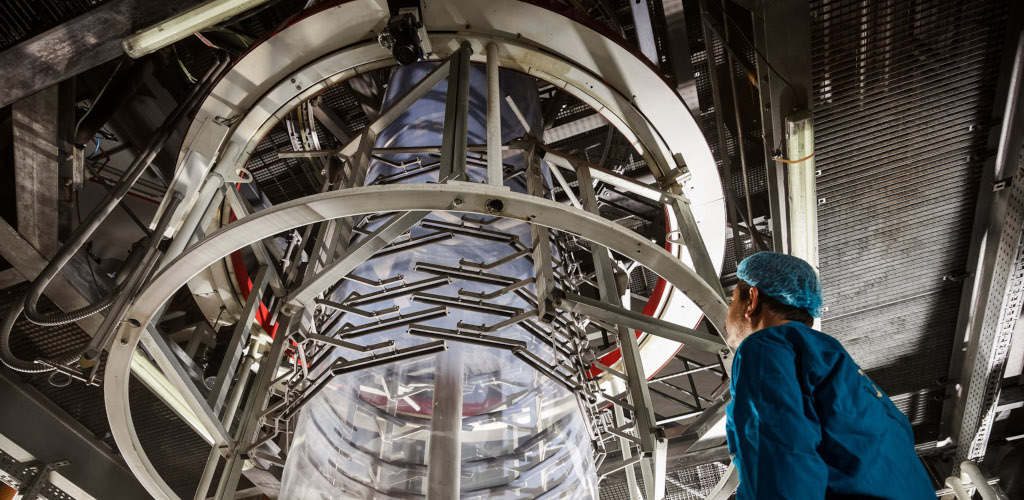Jan 06 | 2022
Custom-Built Polymers Park to Produce Up to 400,000 Tonnes a Year

By Simon West
Abu Dhabi Ports' Industrial Cities and Free Zone Cluster in Abu Dhabi is now home to 95 companies in the polymer sector, as the state-owned operator’s bid to become a global hub for plastics and polymer manufacturing by 2025 takes shape.
AD Ports, an exhibitor at Breakbulk Middle East 2022, taking place on 1-2 February at the Dubai World Trade Centre, controls 10 ports and terminals in Abu Dhabi, the UAE’s largest emirate, and more than 550 square kilometers of industrial and commercial zones within ZonesCorp and the Khalifa Industrial Zone Abu Dhabi, or KIZAD.
Polymers and plastics, a key sector for breakbulk and project cargo, occupies more than 3.4 million square metres of land at ZonesCorp and KIZAD.
“By addressing the needs of companies operating in the polymer sector through swift and cost-effective access to polymers feedstock, best-in-class manufacturing infrastructure and logistics services, we are contributing to Abu Dhabi’s transformation into a major global hub for polymers conversion, as well as the nation’s industrial diversification efforts,” Abdullah Al Hameli, head of the Industrial Cities and Free Zone Cluster, said in a statement.
At KIZAD, the Middle East’s largest industrial and free trade zone, located between Abu Dhabi and Dubai, a custom-built polymers park launched in 2019 has a capacity to produce some 400,000 tonnes per year of polymers for segments including packaging, construction, household goods, agriculture, hygiene, material science, composite materials and 3D printing.
Several international polymer producers have established facilities at KIZAD including South Korea’s Songwon, Italian joint venture Gulf Compound Blending, Schmidt Middle East and the Harwal Group.
The global polymer market is expected to expand from US$439 billion in 2021 to US$617 billion by 2028, according to Fortune Business Insights, driven by increasing demand from fast-moving consumer goods, food and beverages, pharmaceuticals and other sectors.
“The KIZAD polymers park has been specifically designed for the global plastic and polymers industry and has evolved significantly since its launch in 2019, serving as a catalyst to propel the polymers downstream sector in the UAE,” said Mohamed Al Khadar Al Ahmed, CEO at ZonesCorp.
Luring Business
Polymers is not the only industry being lured to the industrial zone.
Australian mineral developer Lepidico signed a deal late last year with AD Ports to install a US$95 million zero-waste lithium production facility on a 57,000-square-metre plot at KIZAD – the first of its kind in the Middle East.
Renewable energy projects are also playing an increasingly important role in Abu Dhabi’s economy, as the emirate seeks to pivot away from oil and gas towards more sustainable energy production.
A US$1 billion green fuels export facility, developed by Abu Dhabi-based Helios Industry, is the largest planned project to date at KIZAD. Electricity generated by an 800-megawatt solar power plant will be used to produce 40,000 tonnes per year of hydrogen and 200,000 tonnes of ammonia.
TOP IMAGE: polymer production at AD Ports’ Industrial Cities and Free Zone
